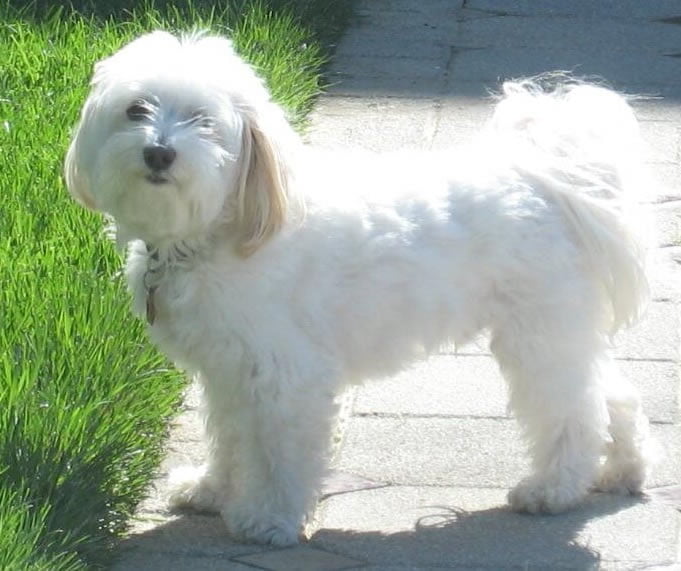Are you looking for a furry companion that is small, affectionate, and full of energy? If so, you might want to consider the Havanese breed as your next pet. This breed is known for its playful and friendly nature, making it a great addition to any household. With their hypoallergenic coat and easy-going personalities, Havanese dogs are perfect for families of all sizes and ages. In this article, we’ll explore the characteristics and traits of the Havanese breed, so you can decide if this is the right dog for you.
Breed Category: Toy
Country of Origin: Cuba
Average Size:23-27 cm
Average Weight:3-6 kg
Average Life Span: 12-15 years
Grooming Requirements: High
Exercise Requirements:Moderate
History and Origin
The Havanese is a small, affectionate dog breed that originated in Cuba. This breed is known for its long, silky coat and playful personality. The Havanese has a rich history that dates back to the 16th century, making it one of the oldest dog breeds in the world.
The Havanese was originally bred as a companion dog for the wealthy families of Cuba. They were often seen in the laps of aristocrats and were highly valued for their affectionate nature and charming personality. The breed was also used as a watchdog, alerting their owners to any potential danger.
During the 18th and 19th centuries, the Havanese became popular with the working class in Cuba. They were used as circus dogs and were trained to perform tricks and entertain crowds. The breed also became popular with the middle class, who kept them as pets and companions.
In the early 1900s, the Havanese was introduced to the United States. The breed quickly gained popularity and was recognized by the American Kennel Club in 1996. Today, the Havanese is a beloved family pet and is known for its friendly and outgoing personality.
The Havanese is a small dog, typically weighing between 7 and 13 pounds. They have a long, silky coat that comes in a variety of colors, including white, black, and brown. The breed is known for its playful and affectionate nature, making them a popular choice for families with children.
The Havanese is also a highly intelligent breed, making them easy to train. They are eager to please their owners and respond well to positive reinforcement training methods. The breed is also known for its adaptability, making them a great choice for apartment living or for families who enjoy traveling.
In conclusion, the Havanese is a beloved dog breed with a rich history that dates back to the 16th century. Originally bred as a companion dog for the wealthy families of Cuba, the breed quickly gained popularity with the working and middle classes. Today, the Havanese is a popular family pet known for its affectionate nature, playful personality, and adaptability.
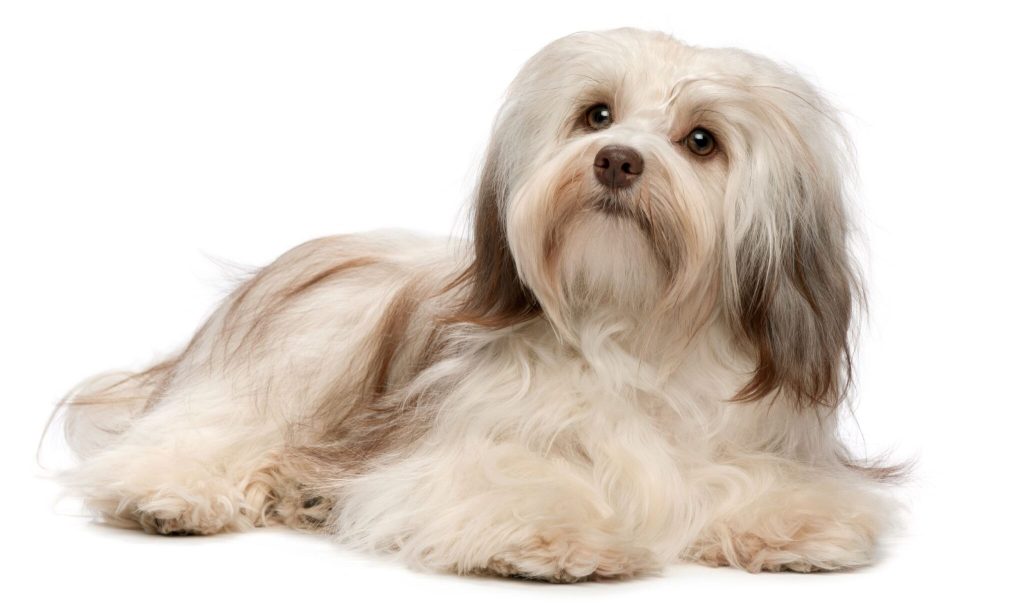
Size and Breed Category
The Havanese is a small breed of dog that typically weighs between 3.5 and 6.8 kilograms. They stand at a height of 20 to 29 centimeters at the shoulder and have a compact, sturdy build. Their coat is long and silky, with a soft texture that comes in a variety of colors including white, cream, black, and brown. The Havanese is a toy breed, which means they are small enough to be carried around and make great lap dogs. Despite their small size, they are known for their playful and energetic personalities, making them a popular choice for families with children.
The Havanese is a member of the Bichon family, which includes other small breeds such as the Bichon Frise and the Maltese. They are a relatively new breed, originating in Cuba in the 1800s. The Havanese was originally bred as a companion dog for Cuban aristocrats, and their popularity quickly spread throughout Europe and the United States. Today, they are recognized by the Kennel Club as a toy breed and are a popular choice for those looking for a small, affectionate dog that is easy to train and great with children. Despite their small size, the Havanese is a sturdy and healthy breed that can live up to 15 years with proper care and attention.
Fur Length and Colour
The fur of the Havanese is one of its most distinctive features. It is long and silky, with a slight wave to it. The fur is also very soft to the touch, making it a pleasure to pet. The length of the fur can vary, with some Havanese having shorter fur than others. However, in general, the fur is quite long and can grow up to six inches in length. The colour of the fur can also vary, with many Havanese having a mix of colours in their fur. Some common colours include white, cream, black, brown, and grey. The fur can also have different shades of these colours, giving each Havanese a unique look.
In addition to the length and texture of the fur, the colour of the Havanese’s fur is also a defining characteristic. The fur can be solid in colour or have a mix of colours. Some Havanese have a single colour throughout their fur, while others have a combination of colours that create a unique pattern. The most common colours for Havanese fur are white, cream, black, brown, and grey. However, there are also Havanese with more unusual colours, such as blue or silver. The colour of the fur can also change as the Havanese ages, with some dogs developing more white or grey fur as they get older.
Termperament and Trainability
Havanese dogs are known for their friendly and affectionate temperament. They are social animals that love to be around people and other pets. They are also known for their playful nature and are great with children. Havanese dogs are intelligent and eager to please, making them easy to train. They respond well to positive reinforcement and are quick learners. However, they can be sensitive to harsh training methods, so it’s important to use gentle and patient techniques. Overall, Havanese dogs make great family pets and are a joy to be around.
When it comes to trainability, Havanese dogs are highly trainable. They are quick learners and respond well to positive reinforcement. They are also eager to please their owners, which makes training them a breeze. Havanese dogs are intelligent and can learn a variety of tricks and commands. However, they can be stubborn at times, so it’s important to be patient and consistent with training. Havanese dogs also have a good memory, which means they can remember commands and tricks for a long time. Overall, Havanese dogs are highly trainable and make great companions for those who are willing to put in the time and effort to train them properly.

Known Health Conditions
Havanese are prone to certain health conditions that owners should be aware of. One of the most common issues is luxating patella, which is a condition where the kneecap dislocates from its normal position. This can cause pain and discomfort for the dog and may require surgery to correct. Another condition that Havanese are susceptible to is dental problems, such as periodontal disease and tooth decay. Regular dental care, including brushing and professional cleanings, can help prevent these issues. Additionally, Havanese may develop allergies, particularly to food or environmental factors. Symptoms of allergies can include itching, redness, and skin irritation.
Another health concern for Havanese is progressive retinal atrophy (PRA), which is a degenerative eye disease that can lead to blindness. This condition is genetic and can be screened for in breeding dogs to reduce the risk of passing it on to offspring. Havanese may also experience ear infections, which can be caused by their long, floppy ears that can trap moisture and bacteria. Regular cleaning and grooming can help prevent these infections. Finally, Havanese may be prone to certain neurological conditions, such as epilepsy and syringomyelia. These conditions can cause seizures and other symptoms and may require ongoing treatment and management.
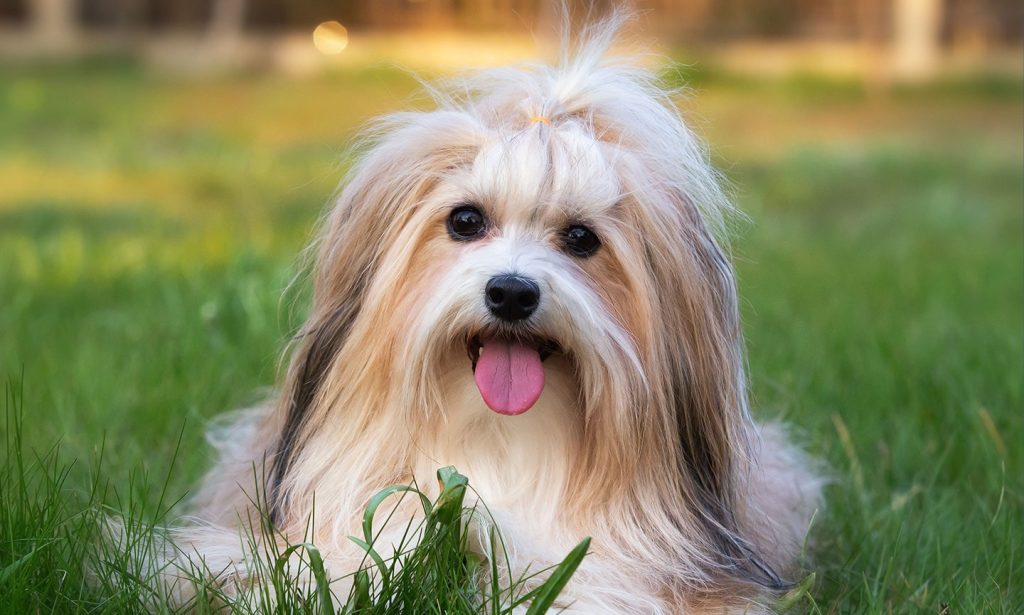
Openness to Strangers
Havanese dogs have a friendly and sociable nature, making them highly receptive to strangers. They are known for their outgoing personalities and are always eager to make new friends. These dogs are not shy or reserved, and they will often approach strangers with a wagging tail and a happy disposition. Havanese dogs are also very affectionate and love to be around people, making them great companions for families and individuals alike. They are always up for a good cuddle or playtime, and their friendly nature makes them a popular choice for those looking for a loyal and loving pet.
Despite their small size, Havanese dogs have a big personality and are not afraid to show it. They are confident and self-assured, which makes them comfortable in new situations and around new people. Havanese dogs are also very adaptable and can easily adjust to new environments and routines. They are not easily intimidated and will often take the lead in social situations, making them great companions for those who enjoy an active and outgoing lifestyle. Overall, Havanese dogs are a joy to be around and their openness to strangers is just one of the many reasons why they are such a beloved breed.
Playfulness Level
The Havanese is a breed that is known for its playful nature. They are energetic and love to play with their owners, making them a great choice for families with children. Their small size and agility make them perfect for playing games like fetch and hide-and-seek. They are also known for their love of toys, and will often carry them around in their mouths or play with them for hours on end.
The Havanese is a breed that thrives on attention and interaction with their owners. They are social animals and love to be around people, making them great companions for those who enjoy spending time with their pets. Their playful nature also makes them great for training, as they are eager to learn and respond well to positive reinforcement. Overall, the Havanese is a breed that is sure to bring joy and laughter to any household.
Suitability as a Pet for Children
Havanese have a friendly and affectionate nature, making them a great choice for families with children. They are known for their playful and energetic personalities, which can provide hours of entertainment for kids. Additionally, Havanese are intelligent and easy to train, making them a good option for families who want a dog that can learn quickly and follow commands. They are also relatively small in size, which can make them a good fit for families who live in apartments or smaller homes. Overall, Havanese can make wonderful pets for children who are looking for a loyal and loving companion.
Exercise Needs
Havanese dogs require regular exercise to maintain their physical and mental health. They are an active breed that enjoys playing and running around. A daily walk of at least 30 minutes is recommended to keep them fit and healthy. Additionally, they enjoy playing games such as fetch and tug-of-war, which can provide them with the necessary exercise they need. It is important to note that Havanese dogs are sensitive to extreme temperatures, so it is best to exercise them during cooler parts of the day.
In addition to physical exercise, Havanese dogs also require mental stimulation. They are intelligent dogs that enjoy learning new tricks and commands. Training sessions can be a great way to provide them with mental stimulation while also strengthening the bond between the dog and owner. Puzzle toys and interactive games can also provide mental stimulation and prevent boredom. It is important to note that Havanese dogs are social animals and enjoy spending time with their owners, so incorporating exercise and mental stimulation into daily activities can be a great way to bond with them.
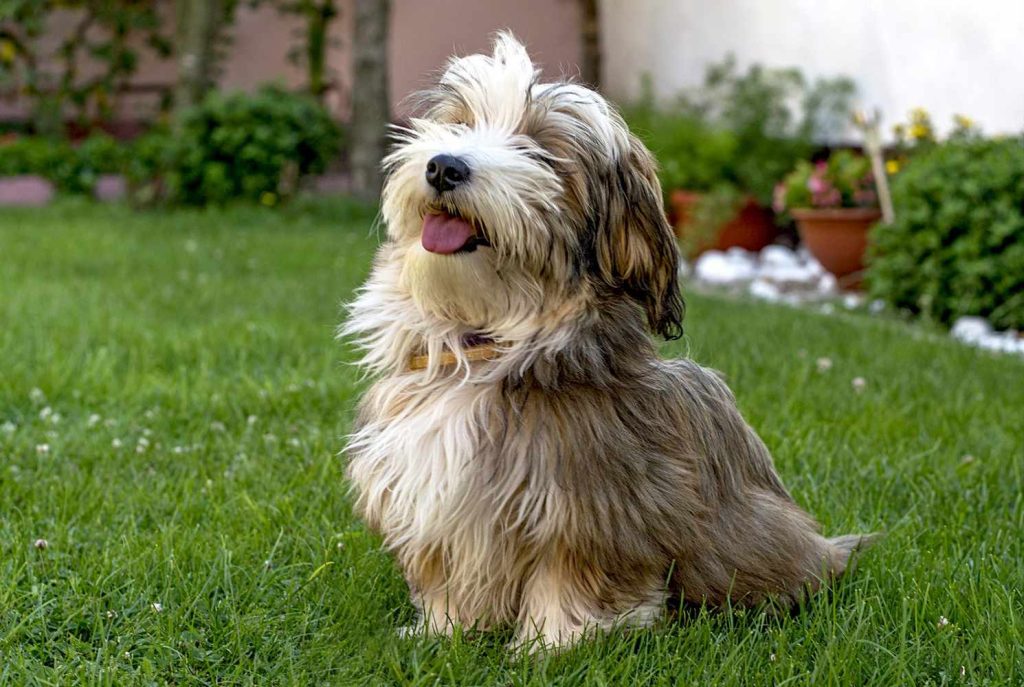
Suitability for a Multi-Pet Family
Havanese dogs have a reputation for being friendly and sociable with other pets. They are known to get along well with cats and other dogs, as long as they are introduced properly and given time to adjust to each other’s presence. Havanese dogs are not typically aggressive or territorial, which can make them a good choice for households with multiple pets. However, as with any breed, individual temperament can vary, so it’s important to monitor interactions between pets and intervene if necessary.
Housing Requirements
Havanese dogs require a living space that is comfortable and safe. They need a warm and dry environment that is free from drafts. The ideal temperature for a Havanese is between 18-22°C. They also require a space that is well-ventilated to prevent the buildup of odors and bacteria. The living space should be large enough for the dog to move around freely and have access to their food and water. Additionally, Havanese dogs require a space that is free from hazards such as sharp objects, toxic substances, and electrical cords.
Havanese dogs require a comfortable sleeping area that is separate from their living space. The sleeping area should be quiet and free from distractions. It should also be warm and cozy, with a comfortable bed or blanket. Havanese dogs are social animals and enjoy spending time with their owners, so it is important to provide them with a space where they can be close to their family. Additionally, Havanese dogs require regular exercise, so it is important to provide them with a safe and secure outdoor space where they can run and play.
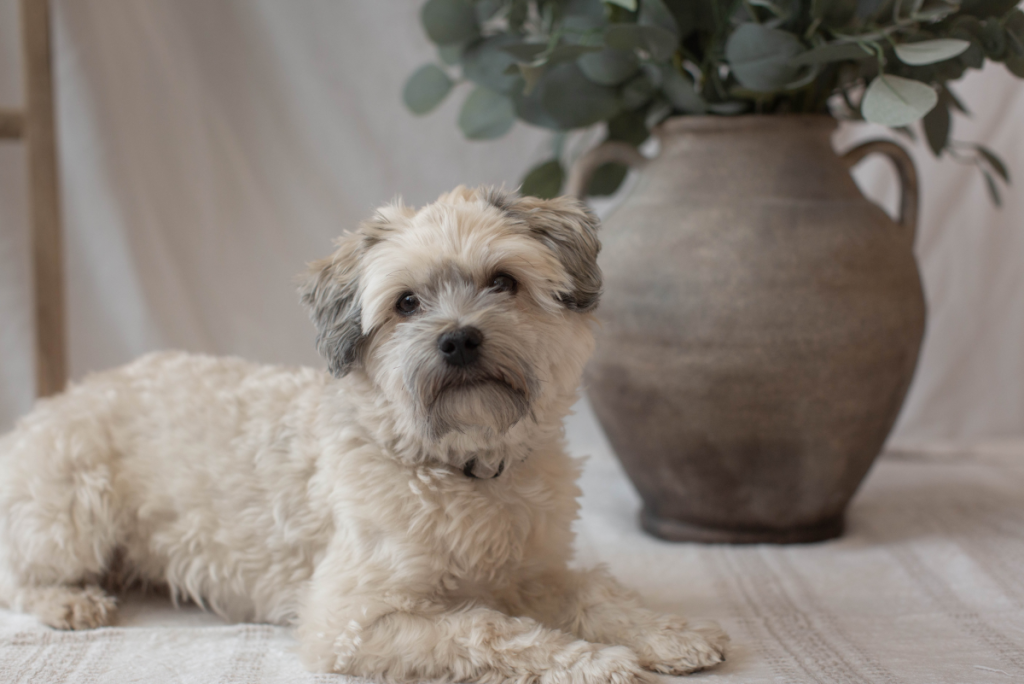
Summary
Havanese make great pets for those who are looking for a loyal and affectionate companion. They are known for their friendly and outgoing personalities, making them great with children and other pets. They are also highly adaptable and can thrive in both urban and rural environments. Havanese are intelligent and eager to please, making them easy to train and a joy to be around. They require moderate exercise and grooming, but their small size makes them suitable for apartment living. Overall, Havanese are a wonderful choice for anyone looking for a loving and loyal pet.
Havanese Dog FAQS
Yes, Havanese are intelligent and eager to please, making them easy to train.
Yes, Havanese are known for their gentle and playful nature, making them great with children.
Yes, Havanese are considered hypoallergenic dogs.
Havanese can be prone to certain health issues, such as hip dysplasia and cataracts. Regular vet check-ups are recommended.
No, Havanese have a non-shedding coat, but they do require regular grooming.
Havanese require moderate exercise, such as a daily walk or playtime in the yard.
Havanese require regular grooming, including brushing their coat at least once a week and bathing every 4 to 6 weeks.
A Havanese can grow up to 23 to 28 centimeters in height.
The average weight of a Havanese is between 3.6 to 6.8 kilograms.
The average lifespan of a Havanese is between 14 to 16 years.
